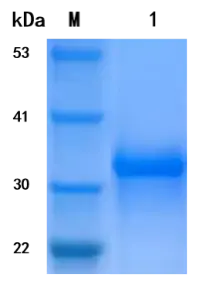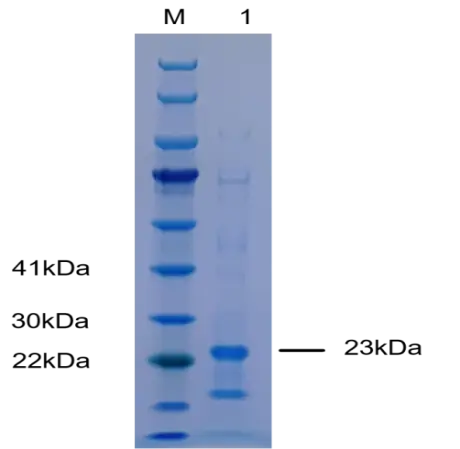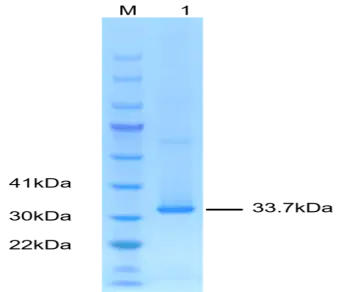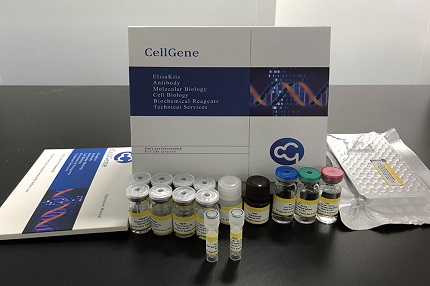Search ELISA Kits
Cytokine Proteins Types
-
P01I0345P-T Human Interferon gamma (IFNγ) Protein, Recombinant
Cat. No.: P01I0345P-T
Uniprot No.: P01579
Expression Host: E.coli
Expression Region: Met1-Gln166
Fusion Tag: 6×His-SUMO (N-terminus)

-
P01I0420P-T Human Long arginine 3-IGF-1 (IGF1-LR3) Protein, Recombinant
Cat. No.: P01I0420P-T
Uniprot No.: P05019
Expression Host: E.coli
Expression Region: Gly49-Ala118
Fusion Tag: 6×His-SUMO (N-terminus)

-
P01R0005P-T Human Receptor activator of nuclear factor kappa B ligand (RANKL) Protein, Recombinant
Cat. No.: P01R0005P-T
Uniprot No.: O14788
Expression Host: E.coli
Expression Region: Ile140-Asp317
Fusion Tag: 6×His-SUMO (N-terminus)

Cytokine Proteins FAQs
-
Q
What type of protein is cytokines?
Cytokine (CK) is a kind of small molecule protein with extensive biological activity, which is synthesized and secreted by a variety of tissue cells (mainly immune cells), such as monocytes, macrophages, T cells, B cells, NK cells, and some nonimmune cells (endothelial cells, epidermal cells, fibroblasts, etc.) through stimulation. It is a low molecular weight soluble protein produced by a variety of cells induced by immunogen, mitogen, or other stimulators. It can be divided into interleukin, interferon, tumor necrosis factor superfamily, colony-stimulating factor, chemotactic factor, growth factor, and others.
-
Q
What do cytokines proteins do?
Cytokines play a role in the body by paracrine, autocrine, or endocrine methods to form multiple physiological characteristics such as pleiotropy, overlap, antagonism, synergy, and a very complex cytokine regulatory network, and then participate in various important physiological functions of the human body. Its research achievements provide a scientific basis for clinical prevention, diagnosis, and treatment of diseases, especially the use of cytokines to treat tumors, infections, hematopoietic dysfunction, autoimmune diseases, etc., which has a very broad application prospect.


_00(1).webp)

